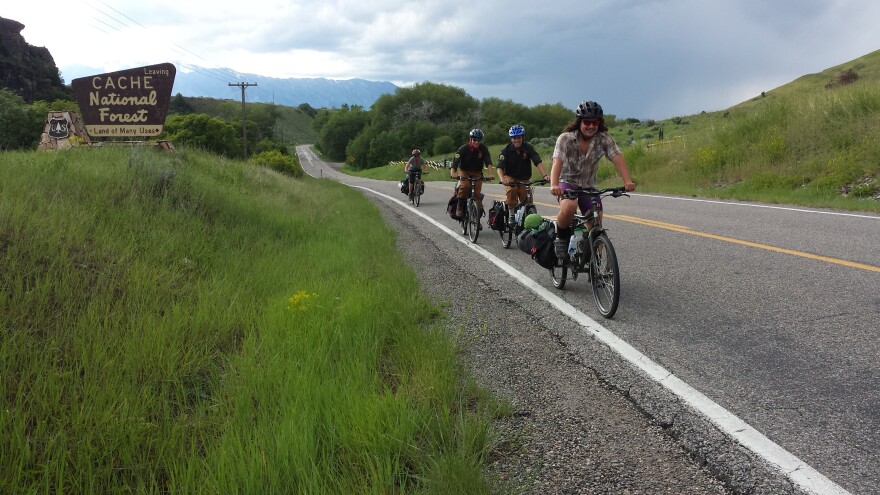Alexander Vincent spent last summer biking with the nation’s first pedal-powered bike crew. The Utah Conservation Corps bike crew traveled on cargo bikes packed with everything they would need for eight days of camping.
“We carry our sleeping gear, so sleeping pad, sleeping bag. We carry clothes for eight days, work clothes as well as riding clothes, work boots, all the P.P., hard hat, gloves. Then we carry food for eight days, as well as group gear which is tools and cookware, things like that," Vincent said. "So we are completely self-sustaining.”
And being self-sustaining is the whole point. They repaired and cleaned three different trails while using carbon-free transportation. The bike crew trekked 60 to 70 miles to get to those trails around the state.
Sean Damitz, who oversaw the project said he sees biking as the future of conservation work.
“We thought 'Hey, we all like to bike as a staff,'" Damitz said. "We bet there’s a bunch of our members that would kind of really embrace this idea of, you know, ditching the keys to the truck and getting on cargo bikes and actually biking to the locations [where] they do all this conservation work.”
The crew received national awards from the Corps Network and the Coalition for Recreational Trails. Vincent said he enjoyed the response from people while they were working on the trails.
“The biggest response we see is when we actually are on the bikes and we are riding through these communities were road bikers will ride and stuff. They’re like, ‘Wow, I can’t believe you guys are doing this. It’s great,'" Vincent said. "People really enjoy the work we do. And that goes for all the conservation work we do through the UCC.”
This summer, the crew will bike 40 miles to the Uinta-Wasatch-Cache National Forest to work along the skyline trail.


